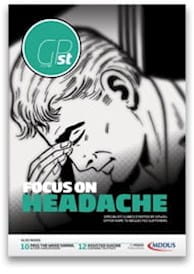WHEN Dr Maureen Baker steps into the role of RCGP chair, she will become one of the UK’s most high profile GPs, helping to lead the biggest royal college in the country.
It is no small task to provide a voice for more than 46,000 members, but Dr Baker comes equipped with a wealth of experience. She has been a practising GP for almost 30 years (currently based in Lincoln) and for almost 15 years has held various leadership positions throughout the College.
She served 10 years as RCGP honorary secretary from 1999, is a member of the RCGP Trustee Board and is RCGP lead for emergency planning and preparedness. She played a leading role in preparing for and dealing with the 2009 influenza pandemic. Dr Baker is also clinical director for patient safety at the Health and Social Care Information Centre.
In 2004 she was awarded a CBE for her services to medicine and has had a prolific academic career.
Dr Baker will take over the role of chair from Professor Clare Gerada (in November 2013) at a time of great change for general practice. She has cited rising workload and poor morale amongst the many challenges facing GPs but remains optimistic about the future.
In a column for the Connecting for Health website, Dr Baker underlined the importance of emerging technologies in supporting and enhancing patient care, adding: “Over the next few years, the challenges for GP leadership will be significant. But GPs in general respond well to challenge and we can expect to see a new generation of GP leaders working with patients to make care better for everyone.”
There have been numerous reports about the increasing pressure on NHS patient care and lack of resources. What role will GPs play in helping the NHS to meet these challenges now and in the future?
General practice is the foundation stone of the NHS, keeping our health service effective and sustainable. It is essential that general practice is better resourced to meet the increasing demands from rising population, an increased proportion of elderly patients, ever-increasing incidence of multimorbidity and a baby boom.
What new skill sets will trainee GPs require to keep pace with the major changes in UK general practice?
GPs, as the expert medical generalists, need to be able to manage patients with multimorbidity effectively and safely. They need to be able to use, and adapt to, new and emerging technologies and be able to adapt to the changes that the information revolution is bringing about within the consultation.
Should GP trainees undergo more leadership training?
GPs are leaders of practice teams and leaders within their healthcare communities. Effective leadership skills are part of the core skillset of all GPs. Opportunities to develop and enhance leadership skills need to be incorporated into GP training and this is one of a number of reasons why extended and enhanced GP training needs to be accepted and rolled out.
What are the qualities of a “good” GP leader?
I would say it is important for GP leaders to have vision and an ability to listen and adapt. They should also show kindness and a willingness to create and develop a strong patient safety culture.
What do trainees need to know about clinical commissioning?
Firstly, that every clinical decision is de facto a commissioning decision. Secondly, be aware of how commissioning works for and against individual patients and how to engage in the system for maximum patient benefit. Thirdly, how to influence commissioning decisions in the best interests of our patients.
What will be your priorities as RCGP chair?
I will be seeking to shift resources into general practice in order to benefit patients and to ensure the safety and sustainability of the NHS. I will also focus on enhancing the GP workforce, with particular emphasis on addressing health inequalities. Another priority will be reducing the emphasis of managerial, target-driven imperatives in the consultation in favour of a more holistic, patient-centred approach.
When you assume your role as RCGP chair, will you follow Professor Gerada’s lead and embrace social media?
I already have – you can find me on Twitter @MaureenZk60
What advice would you give to doctors starting out as GPs?
I think it’s important for new GPs to build and develop a patient safety culture to support you in practising safely and effectively and to give professional satisfaction and an enjoyable working environment. Also, to always be kind - to patients, staff and yourself. And, don’t forget to enjoy your training and your new career.
Interview by Joanne Curran, associate editor of GPST
This page was correct at the time of publication. Any guidance is intended as general guidance for members only. If you are a member and need specific advice relating to your own circumstances, please contact one of our advisers.
Read more from this issue of Insight Primary

Save this article
Save this article to a list of favourite articles which members can access in their account.
Save to library

